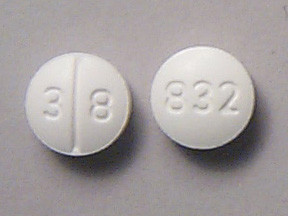OXYBUTYNIN - ORAL
PHONETIC PRONUNCIATION: (OX-i-BUE-ti-nin)
COMMON BRAND NAME(S): Ditropan
GENERIC NAME(S): oxybutynin chloride
Uses
USES: Oxybutynin is used to treat certain bladder and urinary conditions (e.g., overactive bladder). It relaxes the muscles in the bladder to help decrease problems of urgency and frequent urination. Oxybutynin belongs to a class of drugs known as antispasmodics. The manufacturer does not recommend using this medication in children younger than 5 years of age.
How to use OXYBUTYNIN - ORAL
HOW TO USE: Take this medication by mouth, usually 2-3 times a day, or as directed by your doctor. It may be taken with or without food. The dosage is based on your medical condition and response to therapy. The length of treatment is determined by your doctor, who may suggest periodic trials off the drug to evaluate whether you still need to be taking it. When using the syrup, measure the dose out carefully with a medication spoon/cup. Use this medication regularly in order to get the most benefit from it. Remember to use it at the same times each day. Inform your doctor if your condition persists or worsens.
Side Effects
Precautions
Interactions
Overdose
Images
Reviews
Faq for OXYBUTYNIN - ORAL
Oxybutynin is used to treat symptoms of overactive bladder, such as frequent urination, urgency, and incontinence.
Oxybutynin works by relaxing the muscles in the bladder, reducing spasms and controlling the frequent and urgent need to urinate.
Common side effects of oxybutynin may include dry mouth, constipation, blurred vision, drowsiness, and dizziness.
Yes, oxybutynin can be used in children above the age of six to treat overactive bladder symptoms. However, the dosage and administration should be determined by a healthcare professional.
The effects of oxybutynin can be noticed within a few hours after taking the medication, but optimal results may take several weeks of regular use.
Oxybutynin should be used during pregnancy only if the potential benefits outweigh the potential risks. It is important to consult with a healthcare provider before taking this medication while pregnant.
Yes, oxybutynin may interact with certain medications, including antifungal drugs, antihistamines, anticholinergic drugs, and certain antidepressants. It is crucial to inform your doctor about all the medications you are taking to avoid potential interactions.
Oxybutynin is not addictive, as it does not produce a euphoric effect. However, sudden discontinuation of the medication may cause rebound symptoms. It is important to consult with a healthcare professional before stopping oxybutynin treatment.
Yes, oxybutynin can be used in elderly patients, but they may be more sensitive to the side effects of the medication. A lower starting dose is usually recommended for elderly individuals.
Disclaimer
IMPORTANT: HOW TO USE THIS INFORMATION: This is a summary and does NOT have all possible information about this product. This information does not assure that this product is safe, effective, or appropriate for you. This information is not individual medical advice and does not substitute for the advice of your health care professional. Always ask your health care professional for complete information about this product and your specific health needs.



For urge incontinence: The 5mg tablet from Novitium disintegrates immediately when put in mouth
By Scooter on 17 Mar, 2019